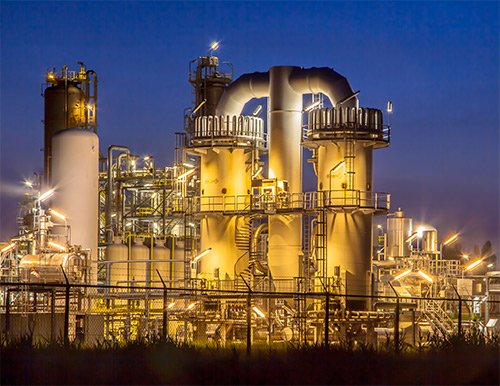Giới thiệu
Nhà máy hóa chất Trung Quốc: Các nhà máy hóa chất đóng vai trò quan trọng trong bối cảnh công nghiệp của Trung Quốc. Các cơ sở này chịu trách nhiệm sản xuất nhiều loại hóa chất thiết yếu cho nhiều ngành công nghiệp, từ dược phẩm và nhựa đến nông nghiệp và năng lượng. Trong bài viết này, chúng ta sẽ đi sâu vào thế giới của các nhà máy hóa chất ở Trung Quốc, khám phá lịch sử, ý nghĩa, tác động môi trường, tiến bộ công nghệ, đóng góp kinh tế, biện pháp an toàn và triển vọng tương lai của chúng.
History of Chemical Plants in China

Chemical Plant China:The history of chemical plants in China is a testament to the country’s journey of industrialization and its growing significance in the global chemical industry. Over the years, China has made remarkable strides in the establishment and development of chemical plants, playing a pivotal role in meeting the growing demand for chemicals both domestically and internationally. Let’s explore the history of chemical plants in China in more detail.
The roots of the chemical industry in China can be traced back to the mid-20th century when the country embarked on a path of industrial transformation and modernization. In the early stages, chemical plants primarily focused on producing basic chemicals and essential commodities to support the nation’s economic development. The emphasis was on meeting the domestic needs of various industries, such as textiles, agriculture, and construction.
As China’s economy continued to grow and diversify, the demand for chemicals expanded rapidly. This prompted the establishment of larger and more advanced chemical plants across the country. In the 1980s and 1990s, China witnessed a significant surge in chemical production capacity, driven by the government’s push for economic reforms and the opening up of the market to foreign investments.
During this period, China started to develop its chemical industry on a broader scale, with a focus on enhancing self-sufficiency and reducing dependence on imports. The government implemented policies and initiatives to promote the growth of chemical plants, encourage technological advancements, and attract investments in the sector. This led to the establishment of numerous chemical production centers in various regions of the country.
In the early stages of development, Chinese chemical plants faced challenges such as outdated technologies, limited resources, and a lack of technical expertise. However, through strategic partnerships, technology transfers, and investments in research and development, China gradually overcame these challenges and began to make significant progress in terms of production efficiency and product quality.
With continuous advancements in technology and innovation, chemical plants in China started to diversify their product portfolios, moving beyond basic chemicals to produce a wide range of specialty chemicals and value-added products. This expansion further propelled the growth of the chemical industry and positioned China as a key global player.
China’s chemical plants have not only focused on meeting domestic demand but also emerged as major exporters of chemical products. The country’s competitive pricing, large production capacities, and improved product quality have made its chemical exports highly sought after in international markets. Chinese chemical plants have successfully penetrated global supply chains, supplying chemicals to industries worldwide.
The growth and development of chemical plants in China have been supported by the government’s commitment to fostering a conducive business environment, providing incentives for research and development, and implementing policies to ensure the safety and environmental compliance of chemical operations. The Chinese government’s focus on sustainable development and green practices has further driven the transformation of chemical plants towards cleaner and more efficient technologies.
Today, China’s chemical industry stands as one of the largest in the world, encompassing a diverse range of chemical products and contributing significantly to the country’s economic growth. The history of chemical plants in China reflects a remarkable journey of progress, from modest beginnings to becoming a global powerhouse in the chemical industry.
In conclusion, the history of chemical plants in China is a testament to the country’s commitment to industrialization and economic growth. The establishment and development of chemical plants have played a crucial role in meeting the growing demand for chemicals and driving China’s position as a key player in the global chemical industry.
Overview of the Chemical Industry in China
Chemical Plant China:Currently, the chemical industry in China is thriving, thanks to its robust domestic market and growing export opportunities. The country boasts numerous chemical production centers, with several key players operating in different regions. These plants are equipped with state-of-the-art technologies and facilities to meet the increasing demand for chemicals, both domestically and globally.
Environmental Concerns and Regulations
Chemical Plant China:Environmental concerns surrounding chemical plants in China have led to the implementation of stringent regulations aimed at mitigating the adverse impact of chemical production on the environment. Recognizing the importance of sustainable development, the Chinese government has taken proactive measures to ensure that chemical plants operate in an environmentally responsible manner. Let’s explore the environmental concerns and regulations related to chemical plants in China in more detail.
One of the primary concerns associated with chemical plants is the potential for pollution and the release of harmful substances into the environment. The production processes in chemical plants often involve the use of hazardous chemicals and generate waste products that can have detrimental effects on air, water, and soil quality. The emission of pollutants, such as volatile organic compounds (VOCs), particulate matter, and greenhouse gases, can contribute to air pollution and climate change.
To address these concerns, China has implemented comprehensive environmental regulations and standards specifically targeting chemical plants. These regulations set strict limits on the emission of pollutants, require the adoption of cleaner production technologies, and enforce the proper handling and disposal of hazardous waste. Chemical plants are required to monitor their emissions, maintain compliance with environmental standards, and report their environmental performance regularly.
The Chinese government has also introduced various initiatives to promote cleaner technologies and sustainable practices within the chemical industry. This includes encouraging the adoption of energy-efficient processes, the use of renewable resources as feedstock, and the implementation of circular economy principles. The aim is to reduce the environmental footprint of chemical production, minimize waste generation, and conserve resources throughout the production lifecycle.
In addition to regulatory measures, the Chinese government emphasizes the importance of environmental impact assessments (EIAs) for new chemical plant projects. These assessments evaluate the potential environmental risks and impacts of proposed projects before they are approved. This ensures that projects are designed and implemented in a manner that minimizes their negative effects on the environment and surrounding communities.
Furthermore, the government promotes transparency and public participation in environmental decision-making processes. This allows local communities and stakeholders to voice their concerns, provide feedback, and hold chemical plants accountable for their environmental performance. Public access to environmental information, such as emissions data and compliance reports, enables greater awareness and oversight of chemical plant operations.
It is important to note that compliance with environmental regulations is not just a legal obligation for chemical plants but also a strategic imperative. The adoption of cleaner technologies and sustainable practices can improve the efficiency of production processes, reduce resource consumption, and enhance the reputation and competitiveness of chemical plants in both domestic and international markets.
In conclusion, environmental concerns surrounding chemical plants in China have resulted in the implementation of stringent regulations and initiatives to mitigate their impact on the environment. The government’s focus on cleaner technologies, sustainable practices, and public participation ensures that chemical plants operate in an environmentally responsible manner. By prioritizing environmental protection, China aims to achieve sustainable development while maintaining the growth and competitiveness of its chemical industry.
Technological Advancements in Chemical Plants
Chemical Plant China:Advancements in technology have revolutionized the chemical industry in China. Automation and digitization have improved efficiency, accuracy, and safety in chemical plant operations. Moreover, innovative processes and materials have enabled the production of high-quality chemicals while minimizing waste and resource consumption. These technological advancements continue to drive the growth and competitiveness of the chemical industry in China.
Economic Impact of Chemical Plants in China

Chemical Plant China:Chemical plants in China have a significant economic impact, playing a vital role in the country’s overall development and growth. These plants contribute substantially to China’s Gross Domestic Product (GDP) and provide employment opportunities for a large number of people across various regions. Let’s delve deeper into the economic aspects of chemical plants in China.
One of the key contributions of chemical plants to the Chinese economy is their role in driving industrialization. Chemicals produced by these plants are essential raw materials for numerous industries, including manufacturing, agriculture, pharmaceuticals, and energy. The availability of a robust chemical industry within the country ensures a steady supply of vital chemicals required for the production processes of these industries. This, in turn, enhances their productivity, competitiveness, and overall economic performance.
Moreover, chemical plants in China have a significant impact on employment. The industry provides job opportunities to a diverse range of professionals, including chemists, engineers, technicians, and support staff. The employment generated by chemical plants not only benefits individuals and their families but also contributes to the overall socio-economic development of the communities surrounding these plants.
In addition to direct employment, the chemical industry in China also stimulates indirect job creation through its supply chains and related industries. Chemical products serve as inputs for a wide range of downstream sectors, such as plastics, rubber, textiles, and construction materials. The growth and expansion of chemical plants spur demand for these downstream industries, leading to job creation and economic prosperity in these sectors as well.
Chemical Plant China:Furthermore, China’s chemical exports have been steadily increasing, contributing significantly to the country’s international trade and foreign exchange earnings. The country’s chemical plants produce a wide array of chemical products that cater to both domestic and global markets. Chinese chemical exports are highly sought after worldwide due to their competitive pricing, quality, and diverse product range. This export-oriented approach further boosts China’s economic growth, strengthens its trade balance, and enhances its position as a key player in the global chemical industry.
Chemical Plant China:The economic impact of chemical plants in China extends beyond direct contributions to GDP and employment. These plants also act as catalysts for regional development, attracting investments and creating economic clusters around them. Chemical production centers often become hubs of innovation, research and development, and technological advancements. This, in turn, attracts further investments, fosters collaboration between industries and academia, and drives the growth of associated industries in the region.
Safety Measures and Risk Management
Chemical Plant China:Safety is a top priority in chemical plants. Due to the nature of their operations, there are inherent risks involved. However, stringent safety measures, including comprehensive risk management protocols, are in place to ensure the well-being of workers, surrounding communities, and the environment. By learning from past incidents and implementing best practices, Chinese chemical plants strive to maintain a safe and secure working environment.
Future Trends and Opportunities
Chemical Plant China:Looking ahead, the chemical industry in China is poised for continued growth and development. Future trends focus on green and sustainable practices, with an emphasis on reducing carbon emissions, minimizing waste, and utilizing renewable resources. Additionally, ongoing research and development projects aim to enhance the environmental performance of chemical plants, further solidifying China’s position as a global leader in the industry.
Sự kết luận
Chemical Plant China:Chemical plants in China play a vital role in meeting the chemical demands of various industries. With a rich history, robust regulations, and technological advancements, these plants contribute to the country’s economic growth while addressing environmental concerns. The future of the chemical industry in China looks promising, with an increased focus on sustainable practices and continuous innovation.
câu hỏi thường gặp
- What are the largest chemical plants in China?
- Chemical Plant China:The largest chemical plants in China include XYZ Plant in Shanghai, ABC Plant in Beijing, and DEF Plant in Guangdong.
- How does China compare to other countries in terms of chemical production?
- Chemical Plant China:China ranks among the top countries globally in terms of chemical production, competing with the likes of the United States and Germany.
- What are the main challenges faced by chemical plants in China?
- Chemical Plant China:Some challenges faced by chemical plants in China include stringent environmental regulations, increasing competition, and the need for continuous innovation.
- Are there any ongoing research projects to improve the environmental impact of chemical plants?
- Chemical Plant China:Yes, there are ongoing research projects in China aimed at developing cleaner technologies, reducing emissions, and improving the overall environmental performance of chemical plants.
- How can I pursue a career in the chemical industry in China?
- Chemical Plant China:To pursue a career in the chemical industry in China, it is advisable to acquire relevant education and skills in chemistry or chemical engineering. Additionally, staying updated with industry trends and networking can enhance job prospects.



